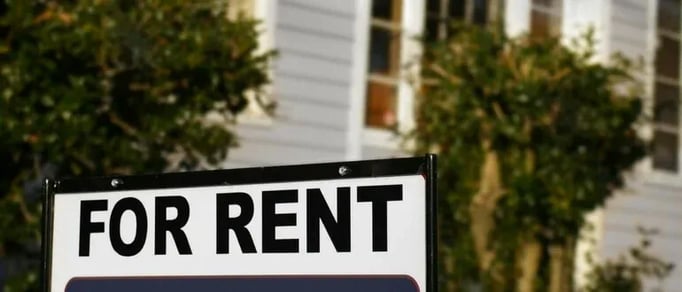3 min read
How to Solve 4 Common Property Manager Frustrations
![]() David Schwartz
Oct 4, 2016 9:00:00 AM
David Schwartz
Oct 4, 2016 9:00:00 AM

Being a property manager isn't always easy.
Oftentimes you're extinguishing one fire after the next: The tenant in 409B is complaining about excessive noise violations (again). The contractor scheduled to fix the AC was supposed to be here 2 hours ago. And you're expected to give a tour in... Oh, 5 minutes!
The reality is there are many responsibilities that come with managing a multi-family building: Accounting, marketing, maintenance, and customer service are just a few of the hats property managers wear.
They say variety is the spice of life, but sometimes we all wish things were a bit more predictable. The good news is there are several things you can do to makes things easier.
The key is to develop and implement systems that provide streamlined solutions for common property management issues. In this article, we'll discuss strategies for eliminating routine challenges faced in your building.
The Most Common Frustrations (and their solutions)
1. Unit Turnover
Do you know the turnover rate for your property? According to the National Apartment Association's 2014 survey of more than 3,000 properties, the average turnover rate is 54 percent. Assuming half your residents are moving out every year, the average length of tenancy is two years.
That's a lot of moving! Unfortunately, turnover is one of the largest operating expenses faced by property managers. Every time someone moves out, you have to spend money on make-ready costs, advertising, and incentives. And every month that unit sits vacant, you are paying additional costs in lost rent.
The Solution:
- Provide 5-star customer service, and
- Stagger move-out dates.
While you can't stop someone from taking a job in another state, you can provide a more enjoyable living experience. And that begins with resolving the most common tenant complaint: Poorly handled maintenance issues.
Promptly respond to requests, regularly ask for and implement feedback, and let tenants know you care. In doing so, you will significantly reduce the "grass is greener syndrome" that prompts unnecessary move-outs.
Additionally, stagger lease expirations throughout the month instead of scheduling them all on the same day. If you have a 3-man maintenance team and 10 units that need to be revamped at the same time, your team will surely be backed up with work.
2. Poor Online Reviews
It's not an overstatement to say, "The Internet has changed everything." Especially when it comes to choosing an apartment. For some reason, people love reading and writing reviews! Look no further than the popularity of Yelp for proof.
The social sharing site allows customers to publicly critique a variety of businesses, including apartment complexes. While most prospective tenants won't be put off by one negative review, they will be influenced by several.
Some landlords are taking extreme measures to control their online reputations. A Florida apartment complex actually issued an addendum banning tenants from posting negative commentary online.According to the lease, a social media breach would result in a $10,000 fine!
Since trying to control customer opinions usually backfires (and is just kind of crappy in general), we recommend proactively creating a great place to live. With that said, how do you handle those negative reviews that slip through the cracks?
The Solution:
- Regularly monitor review sites,
- Publicly apologize ,
- Privately reach out with a solution, and
- Request that reviews be modified.
3. Maintenance Issues
Handling maintenance issues is an unavoidable part of property management. No matter what age your building, things will break. The questions are:
How quickly are you able to fix them?
Do tenants know what to expect?
Most renters are actually quite forgiving in regards to time frames so long as a). They understand how your maintenance process works and b). Issues are sufficiently resolved.
Here's what that looks like:
The Solution:
- Create a ticketing system,
- Outline expectations in lease,
- Provide accurate time frames,
- Fix issues (i.e. no shortcuts), and
- Follow up with tenants.
4. Excessive Utility Bills
For better or worse, landlords are responsible for paying tenant water bills in the state of New York. They are also responsible for covering the cost of energy used in the form of hot water.
Considering that the cost of water has risen more than 200 percent over the past 15 years, it's safe to assume most property managers are experiencing profit loss.
But how do you really know your bills are excessive?
Besides comparing previous utility bills and looking for any substantial spikes in activity, you can estimate a desirable "usage average" for your building.
Our research shows the average tenant uses around 75 gallons of water a day. For each additional tenant occupying a unit, add 35 gallons. Considering the majority of apartments are occupied by two residents, it's safe to assume unit consuming more than 150 gallons per day are wasting water. Keep this in mind when glancing over your next bill, and you may be surprised!
The Solution:
- Install tamper-proof, low-flow shower heads,
- Calibrate toilets for minimal water usage, and
- Wirelessly monitor toilets for leaks.
Take The Stress Out of Property Management
When one isn't "putting out fires," property management is actually highly enjoyable. In very few other jobs can one combine such a diverse array of interests (i.e. business, design, customer service, event planning, marketing and more).
If you're ready to make property management fun again, implement the aforementioned strategies. By proactively addressing common issues head on, you'll feel much more in control on those days when the variety of property management has become more annoying than awesome.


